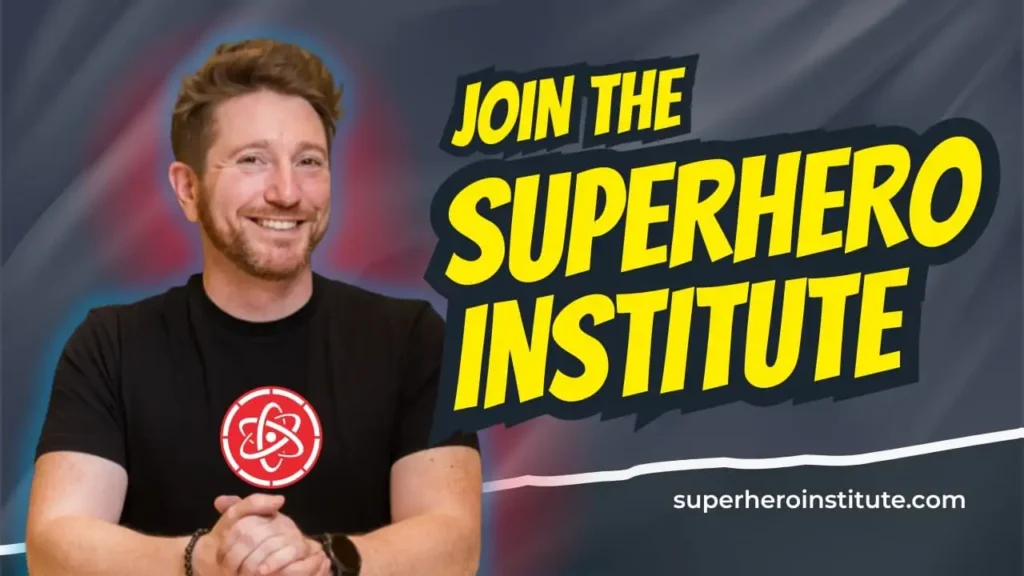A 3-Hour Rapid Learning Project
There are a lot of ways to change the world.
No matter which way we choose, we ought to make sure we are prepared for the mission.
That preparation invariably begins with learning enough about what you want to change, to actually stand a chance of doing it.
Learning is a massive subject. It would be impossible to cover everything there is to know about this important meta-ability in one post.
So, for today, I want to narrow the focus to share one 5-step, 3-hour method you can use to rapidly learn a lot about a subject in a relatively short period of time.
✉️ Get the Infinite Impact
Join thousands getting weekly wisdom on unlocking hidden potential, building meta-abilities, and creating meaningful change through practical frameworks you can use immediately.
Define
Set a timer for 10 minutes
The first thing you want to do is define the scope of what you want to learn.
This helps to provide both direction and constraints. Defining the boundaries will help you avoid the trap of learning a lot of random and disconnected information, that does not move you any closer to understanding.
Most importantly, setting the scope helps you to know whether or not you’ve achieved a learning objective. Once your level of knowledge and understanding reasonably covers the scope, this learning project is complete.
How you define the scope is up to you, but here are three good ways to start.
1. The Overview Scope
If your objective is to get an overview of a subject, you might want to find a list of some of the most important terms or ideas to define. You may want to get familiar with the most well-known people, theories, or criticisms.
If you set out to get an overview, you must avoid going too deeply on anything. Your goal is to get the broadest understanding of the subject.
2. The Question Scope
Another great place to start is with a question, or several questions, about something you don’t understand.
If you choose this route, make sure the questions are meaty. If you select questions that can be answered with one word following a single Google search, you may never go deep enough to gain a true understanding of the subject. Especially not one that could help you affect change.
3. The Argument Scope
If you want to truly understand a subject matter, you need to be able to see it from a variety of angles. One way to do that is to take a position you hold and try to disprove it, or try to prove it.
Learning what “the other side” believes about a subject is an excellent way to prepare yourself to confront those arguments later.
Clip and Capture
Set a timer for 60-minutes
Once you’ve defined what you want to learn about, the next step is to gather as much information as you can. During this stage, the goal is not to understand or synthesize the information. It’s to find it, critically analyze the validity of the source, and then capture it.
This is, almost entirely, a collection exercise. Focus on volume and speed.
Take the first 30-minutes to clip articles, videos, podcasts (don’t forget the show notes), and online courses to a digital notebook or database. Look for the in-depth analysis, essays, research studies, and guides.
Then, take the next 30 minutes to go through books on the subject matter, capturing the best and most useful excerpts. One good way to maximize your time is to subscribe to book summary services like Blinkist and Shortform. For online courses, check Skillshare or Masterclass.
Curate and Summarize
Set a timer for 60-minutes
Once you’ve filled a database or notebook with mountains of information, now you must sift through it and find what is more useful for helping you develop an understanding of the subject.
During this stage, you must be very efficient with your time. Take 60-minutes to go through everything you’ve collected, looking for patterns and trends, identifying key facts and information, and pulling out anything that feels important.
The goal is to distill all of the most important informations, facts, and ideas into a single note.
I call this the Master Note. The Master Note then becomes your central information hub for this subject. You can add to it at any time as you find new information.
Review
Set a timer for 30-minutes

Once you’ve created an information-rich Master Note, it’s time to review. During this 30-minute review, make sure to spend the majority of the time seeking to satisfy the requirements of the original scope.
Feel free to add your own ideas and emotional reactions to the Master Note throughout this review process. This helps to anchor information to emotion and personal narrative which will enhance your likelihood of recalling the information later.
Teach
Set a timer for 30-minutes
Now that the review is done, get ready to teach what you’ve learned. It’s often been said that the best way to learn something is to teach it.
Open a separate document and begin to create a course curriculum to teach others about what you’ve just learned. Not only can you use this as a guide for later conversations about the subject, but also a review for yourself as the information begins to fade in your mind.
Use the original defined scope as a guide.
So, you’re an expert now, right?
I don’t want anyone to get the wrong idea about this exercise so, I’ll say it plainly:
You still probably don’t know enough about the subject to change the world.
But, you did begin.
This one time, 3-hour event will advance your understanding. But Learning is not a one time, 3-hour event. The real gains take shape when you continue to do this sort of exercise again and again. That is how you develop a well-rounded, deep understanding of a subject matter.
Learning is one massively important ability that gives us the potential to affect change in the world. But it’s not everything. Luckily, the other skills we need, all reinforce that learning, or point us in the direction of the things we must learn next.
Unlike what some of the more basic comic book runs might have you believe, we can’t punch our way out of most problems. Even if we could, we would still need to know a lot more about who, what, when, where, why, and how we should throw those punches.
The method above is a start. The key is to keep doing it.
—
P.S. If you do this, please tell me about it. Either email me or comment on this post.
I hope you enjoyed this post.
If this is your first time here or you haven’t yet become a subscriber, I hope you’ll join me.
If you’re already a subscriber, I hope you love it enough to help support my work as a writer by becoming a member, where you’ll also get all sorts of other benefits.
I hope you enjoyed this post!
If you liked this post, then you will LOVE my newsletter (The Infinite Impact)
and my learning community (The Superhero Institute).


